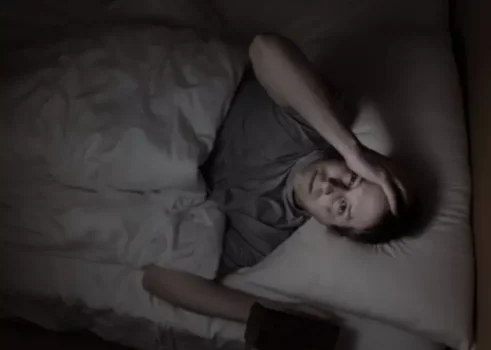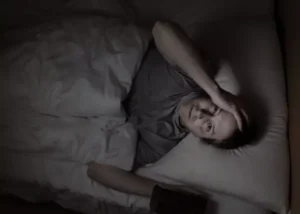
Substance use treatment providers may offer oversight in some instances, although this is not always the case. To apply for most government assistance programs, individuals can visit official state websites, call designated phone lines, or use resources like USA.gov’s Benefit Finder for guidance. With the advent of digital technology, online bank transfers have become a popular method due to their immediacy and security. These transfers allow individuals to send money directly from their bank accounts to the sober living home’s account.
Government Assistance
- Some sober homes do not require residents to pay utility bills, but utilities may be rationed to avoid waste.
- Additionally, sober living house rules may include a curfew, helping around the house, and attending group meetings.
- These homes offer a structured living environment where residents can work on their sobriety while receiving support from their peers and staff members.
- For many people, the structure, support and life experience to be gained from these programs becomes a much needed training ground for building a drug-free lifestyle.
We publish material that is researched, cited, edited and reviewed by licensed medical professionals. The information we provide is not intended to be =https://ecosoberhouse.com/ a substitute for professional medical advice, diagnosis or treatment. It should not be used in place of the advice of your physician or other qualified healthcare provider.
Mental Health Resources

Payment plans, scholarships, grants and government-funded programs may be available for residents facing financial hardship. Organizations that offer SLH scholarships include CLEAN Cause Foundation and Ben Meyer Recovery Foundation, per Dr. Kennedy and Clark. Many sober living homes also require residents to pay weekly rent following a one-time move-in fee, according to Robilio. Halfway houses fall under the umbrella term “sober living home,” as both terms refer to residences where people in recovery stay before going back to living on their own, Sober Living says Dr. Kennedy. The difference between sober living and addiction treatment is that sober living is a living arrangement.
- Once granted tax-exempt status, organizations can avoid paying federal income taxes and are eligible to receive tax-deductible charitable contributions.
- The opinions expressed are the author’s alone and have not been provided, approved or otherwise endorsed by our advertisers.
- Taking care of mental and physical health is a requirement specified on the lease.
- Some sober living homes are covered by private insurance, government funding or Medicaid.
- If you want to find the best sober living home near you, it’s important to carefully consider different options as each home is structured differently and usually has its own house rules.
- Most often, these homes are paid for privately through rents and other fees paid by the sober living residents in the home.
Typical Day at a Sober Living Home

For non-profits seeking grants, the Grants.gov website is a comprehensive resource outlining eligibility for various government grants. Non-profits must meet the eligibility criteria before applying to avoid wasting time and resources. Additionally, the IRS website provides resources on the lifecycle of an exempt organization, including applying for tax-exempt status and understanding charitable contributions. Residents may first move into homes with high levels of support and then transition to homes with lower levels of support.
- The daily schedule at sober living homes is heavily influenced by the residents’ current stage of recovery.
- If you or someone you love is struggling with drug or alcohol addiction, a sober living home may be the right solution.
- These entities provide essential funding that can help cover operational costs, making recovery accessible to individuals who might otherwise be unable to afford it.
- These rehabilitation programs typically involve a combination of medication, therapy, education, and aftercare services.
How Much Does Rent at a Sober Living Home Cost?

Seek guidance from financial counselors or the staff at the sober housing to ensure you can cover the costs throughout your stay. If you have health insurance, Substance abuse check to see what kind of coverage you have and what services or amenities are included in your plan. Certain sober living facilities may also have scholarship programs to support underprivileged residents. The sober living cost typically covers rent for shared accommodations, but it may not include all expenses. One of the biggest factors that can impact the cost of sober living is location. Sober-living homes in large metropolitan areas tend to be more expensive than those in smaller towns or rural areas.

Sober Living Houses vs. Rehab Centers and Halfway Houses

Additionally, residents may have access to vocational training programs or educational resources to help them gain skills and qualifications for job opportunities. Substance abuse, violence, and discrimination are strictly prohibited, and residents are responsible for their own recovery and contributing to household responsibilities. American Addiction Centers (AAC) offers sober living arrangements nationwide at Resolutions – Recovery Residences. Our representatives can answer your questions and guide you toward treatment in your area.
- Rent for these homes typically ranges from $500 to $5,000 per month, with some homes averaging between $450 to $750.
- Sober living homes offer supportive, stable housing for people who are overcoming a substance use disorder or addiction.
- However, these homes may also be a better fit for individuals who need more structured support to maintain their sobriety.
- Sober living homes have rules and regulations that must be followed by all residents to ensure a safe and supportive environment.
These rules are not meant to be punitive but are in place to support the health and recovery of all residents, creating a community that thrives on mutual respect and shared goals. Staying in a sober living home means you never have to deal with roommates pressuring you into drinking or using drugs. Furthermore, moving into a sober living home means you never have to worry about whether your roommates have paid their share of the rent on time. Your health and wellness is unique to you, and the products and services we review may not be right for your circumstances. “If there’s not a ‘perfect’ fit, you may still benefit from the structure, support and monitoring that a sober living house provides until you feel more confident in your sobriety,” says Dr. Kennedy.